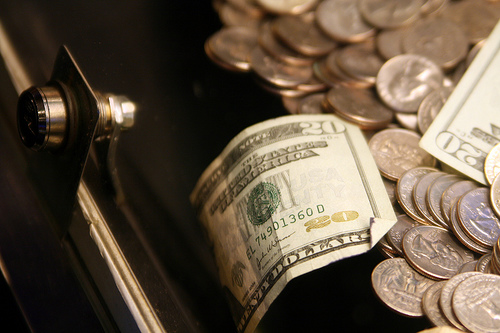When you think of Las Vegas or Atlantic City, you often picture neon lights and flowing poker chips. Luck may be with or against you, but gambling tempts almost every adult at some point in their life. Many studies have been conducted about the impact of gambling on a community, from crime statistics to larger police forces. However, there are several reasons why gambling simply boosts an economy. From the initial construction to ongoing management, casinos and gambling bring countless dollars to one city alone.
Construction Gains
Before the foundation is even poured for a casino, the economy benefits from increased employment in interior design and structural engineering. Professionals need to be hired to create a vision for the gambling center, along with functional aspects, including parking garages and security. Once construction begins, even more economical benefits reign. Construction crews converge on the site, building the casino from the ground up. Because the job takes several months at the minimum, crews typically contribute to the economy by purchasing local construction materials and eating out for lunch or dinner.


Hanging $20 by Quinn Dombrowski, on Flickr. This work is licensed under a Creative Commons Attribution-ShareAlike 4.0 International License.
Long-term Employment Effects
As the construction crews return to other jobs, the employment benefits only gain traction. The long-term economy is boosted with jobs inside the casino. Card dealers, waitresses and management need to be on the premises 24 hours a day, depending on the location. Janitorial workers, security, chefs and parking valets are just a few of the positions that need to be filled. With hundreds of local residents employed, they can contribute to the economy by purchasing everyday goods, from electronics to organic foods. With job stability, employees are more inclined to spend even more through the years, creating a bountiful economy.
Pulling In Tourist Dollars
The key to any gambling institution, according to allpro, is to pull new customers in the door every day. Tourists are perfect contributors to the local economy. Because they are usually on the trip of a lifetime, tourists are more loose with their spending money. They are more inclined to gamble at the blackjack tables compared to plunking in quarters at a slot machine. Tourists are also at the casino for longer periods because they do not have a home or responsibilities to attend to. As a result, they could spend several hours trying their luck with various games. The influx of money could be substantial, depending on the traveler’s income level.
Spreading the Wealth
The casino is not the only entity that contributes to the local economy. Visitors need a place to rest and eat. Hotels and restaurants benefit from increased sales, along with local stores. Tourists typically like to buy local goods, such as t-shirts, hats and jewelry. They will visit department stores and boutiques to find the perfect gifts to bring home. People cannot gamble the entire time they are in or near a casino. Any shop or eatery near the gambling center is bound to see a higher influx of customers spending ample cash.
Local Farms Benefit
Although it is an indirect economic boost, local farms see higher sales of their produce for the casino and local restaurants. Because large groups often visit casinos, especially if there is a convention nearby, local produce is critical for customer service at the dining table. As a result, local farmers sell more of their goods at possibly higher prices. Casinos and restaurants see the economic returns, allowing them to offer premium pay for lettuce, tomatoes and other chef necessities.
If you examine the history of older gambling centers, from Reno to Atlantic City, you’d see a bustling metropolis that seems to grow larger by the day. Despite some drawbacks, gambling does boost an economy.
